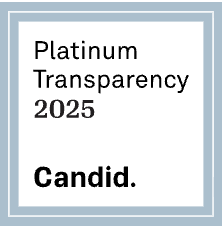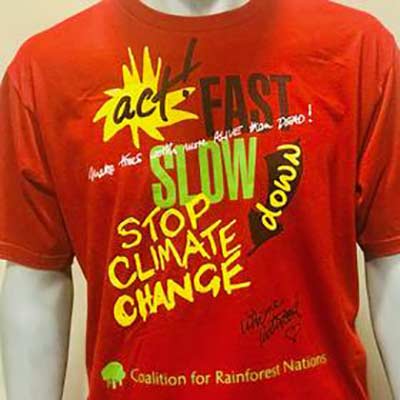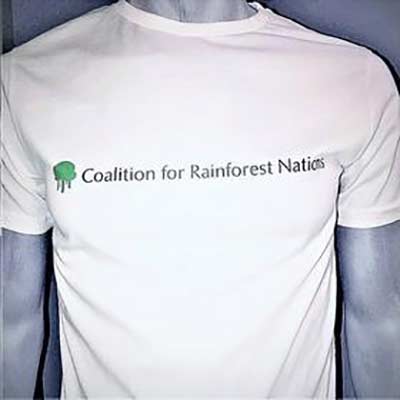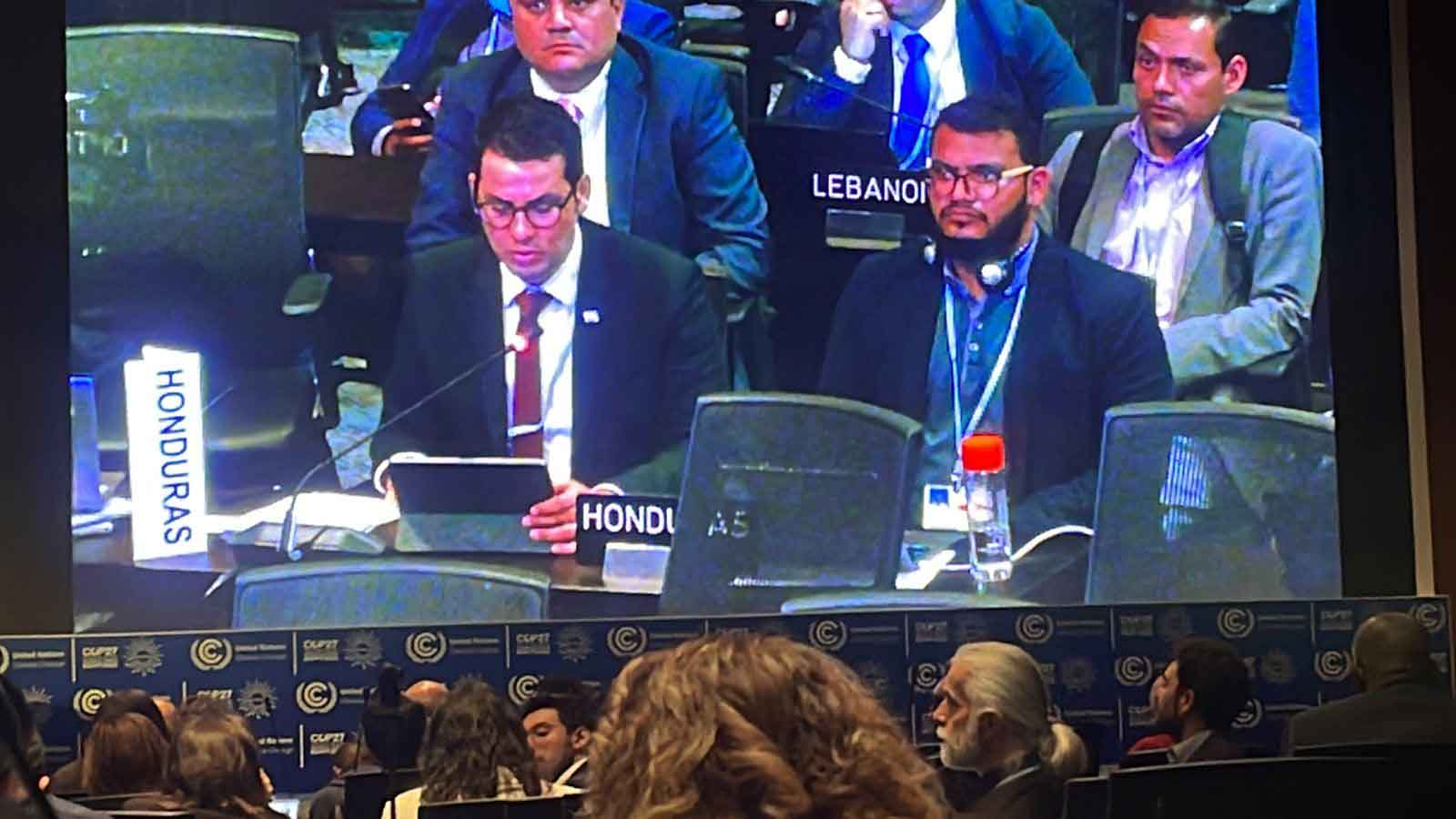
Honduras making an intervention on the Sharm El-Sheikh Implementation Plan
COP27 – A Victory for CfRN and Rainforests
One year after COP26, where mention of the Reducing Emissions from Deforestation and Forest Degradation (REDD+) Mechanism was controversially removed from the implementation article of the Paris Agreement (Article 6), rainforest nations successfully negotiated the mechanism back into the COP27 Sharm-El Sheikh Implementation Plan at the eleventh hour.
Sharm El Shiekh, 21 November 2022:
In thrilling last-minute negotiations on Saturday night, November 19th, the Coalition for Rainforest Nations (CfRN) re-affirmed the REDD+ mechanism as the global initiative for tackling deforestation under the Paris Agreement. The text underscored the role of private finance in supporting developing country efforts to slow deforestation and reduce emissions at national scale.
“We are proud of what we have achieved at the COP, especially after last year’s bitter disappointment. The positive outcome of the final text on forests and finance is in line with Papua New Guinea’s Prime Minister Hon. James Marape’s call for climate action at the UN General Assembly,” said Simo Kilepa, Minister of Environment, Conservation and Climate Change, for Papua New Guinea. “The voice of the Global South has been heard. We thank the Egyptian Presidency for the transparency and inclusiveness with which they conducted the talks this year.”
The Coalition received notable support from Ève Bazaiba, Deputy Prime Minister of the Democratic Republic of Congo. She flew into Sharm El- Sheikh late Thursday evening, leading the charge with the Coalition in the final hours of negotiations to rally the Africa Group, Indonesia, and Brazil in support of REDD+. The effort helped stave off attempts by the United States to remove references in the Sharm El-Sheikh Implementation Plan to the REDD+ mechanism, which is included in Article 5.2 of the Paris Agreement.
“Now, we are asking ourselves: 'what are we doing here at these negotiations if they will remove this very important element to fight against the warming of the planet?' We want, ask, demand, to reinsert the role of rainforests and peatlands in the cover decision," DPM Bazaiba said.
Developing countries fought to ensure that the REDD+ mechanism -- rather than other diffuse efforts, such as the voluntary carbon standards and ART-Trees, favored by the United States -- was included in the cover decision. The inclusion of REDD+ is meant to focus efforts under the Paris Agreement, whose signatories include countries representing over 90% of global rainforests. The other structures lie outside the Paris Agreement and are designed to remove carbon credits from sovereign nations’ control and lock in low future prices.
Reducing Emissions from Deforestation and Forest Degradation (REDD+), which was originated by CfRN in 2005, is a global conservation mechanism that rewards rainforest nations for successfully slowing deforestation and reducing emissions under the Paris Agreement. In the COP27 Sharm El-Sheikh Implementation Plan, REDD+ is now restated in section XVI. Titled Forests:
Paragraph 47 “Recalls that, in the context of the provision of adequate and predictable support to developing country Parties, Parties should collectively aim to slow, halt and reverse forest cover and carbon loss, in accordance with national circumstances, consistently with the ultimate objective of the Convention, as stated in its Article 2; (footnote 30: Decisions 1/CP.16 and 9/CP.19.)”
Private sector finance has always been viewed as integral to the success of the REDD+ mechanism, and there has never been a COP decision that ruled REDD+ out of the carbon markets. In Egypt, CfRN re-iterated this position with the inclusion of Footnote 30. It refers to previously recognized COP decisions, 1/CP.16, and 9/CP.19, that encourage private sector finance for developing countries in return for accomplished emissions reductions under the REDD+ mechanism. Footnote 30 points to the decision 9/CP.19 Work Programme on Results-Based Finance to Progress the Full Implementation of the Activities referred to in decision 1/CP.16, paragraph 70, which encourages Parties to contribute to mitigation in the forest sector by undertaking REDD+ activities. Decision 9/CP.19
“…Reaffirms that results-based finance provided to developing country Parties for the full implementation of the activities referred to in decision 1/CP.16, paragraph 70, that is new, additional and predictable may come from a variety of sources, public and private, bilateral, and multilateral, including alternative sources, as referred to in decision 2/CP.17, paragraph 65;”
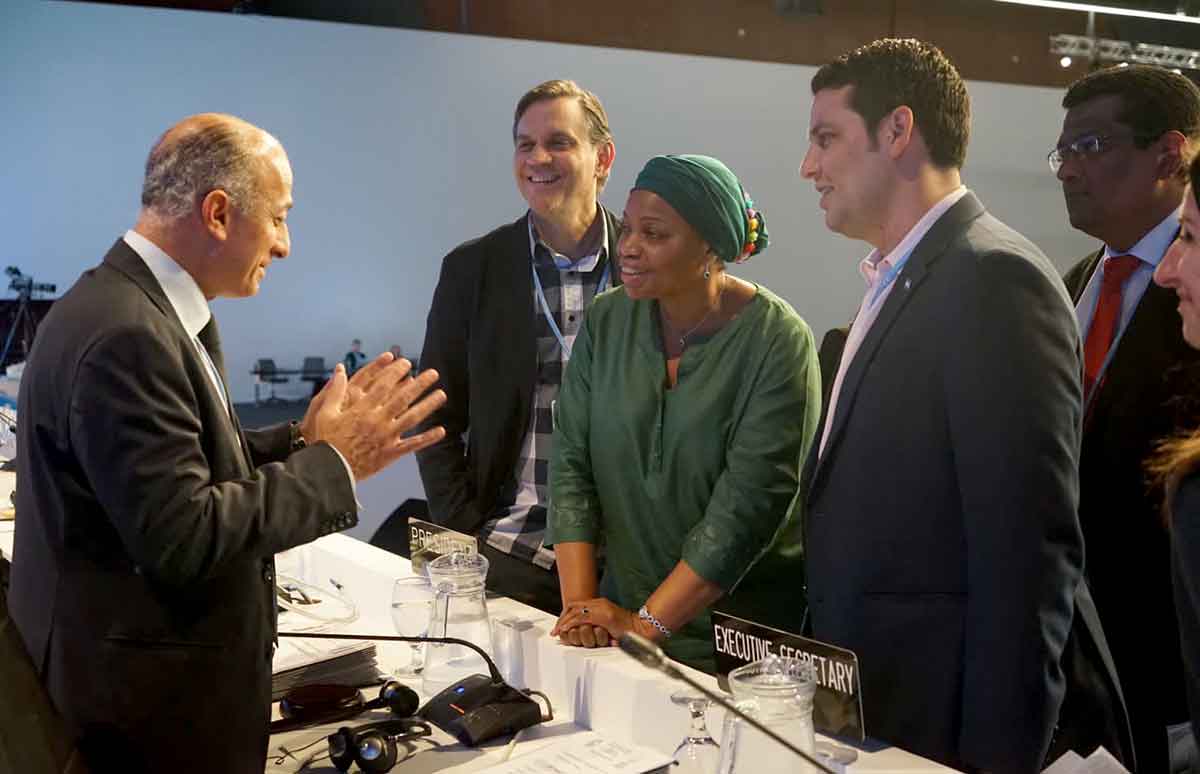
DPM Ève Bazaiba of the DRC, Vice Minister Malcolm Stufkens of Honduras, and CfRN's Kevin Conrad and Emilio Sempris meet with Wael Aboulmagd, Special Representative of the COP 27 President.
The Sharm El-Sheikh Implementation Plan clarifies once and for all that developing nations have always been able to access private finance and markets for forest preservation, including through international carbon markets.
“The Plan finally puts to bed years of misinformation that UNFCCC REDD+ wasn’t intended for companies or carbon markets. The private sector has always been welcome to support the efforts of rainforest nations. REDD+ sovereign carbon credits are of the highest environmental integrity and include some of the richest biodiversity on the planet,” said Kevin Conrad, Executive Director of the Coalition for Rainforest Nations.
In November, the UNFCCC approved Gabon’s 90 million tons of emissions reductions, called REDD+ Results, for slowing deforestation over the period 2010-2018. During this period, Gabon not only legislated against deforestation but also protected the habitats of endangered species, most notably, the African forest elephant, whose numbers grew from 60,000 to 95,000. For Gabon, revenue from the sale of its sovereign REDD+ carbon credits will go to forest preservation, sustainable forest management, paying off sovereign debt, and supporting its transition to a sustainable economy.
Both Honduras and Belize are set to issue 7.7 million and 5.6 million tons of REDD+ sovereign carbon credits respectively for reducing emissions and protecting the world’s biggest Jaguar habitat – the Central American Jaguar corridor. The credits are expected to be issued in Q1 2023. Papua New Guinea is expected to follow suit with over 90 million tons later in 2023.
“We are looking for climate justice,” said Environment Minister Lucky Medina of Honduras. “Our president has made the environment a priority. Sovereign carbon credits are the best way to stop deforestation, limit migration, and reduce inequality. We are part of the solution. We are not part of the problem.”
Last month, the European Energy Exchange (EEX), the leading marketplace for trading carbon dioxide (CO2) emissions in Europe and internationally, announced a partnership with CfRN to cooperate on the establishment of a market platform for REDD+ sovereign carbon credits. Deutsche Bank has also published a white paper endorsing sovereign carbon. For more information, visit www.rainforestcoalition.org
For press, contact mark@cfrn.org
